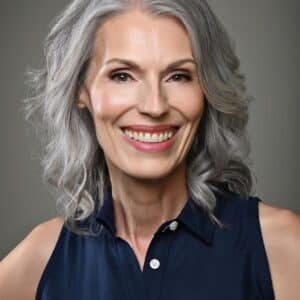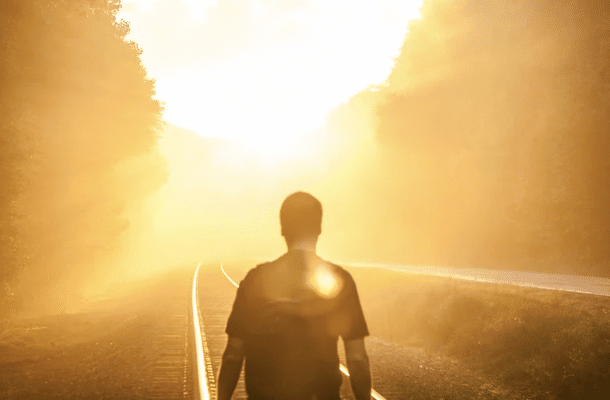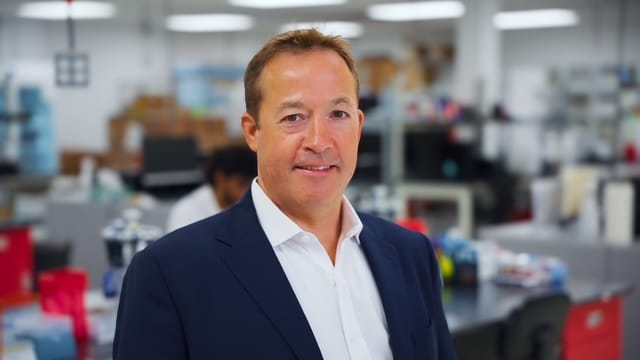FMCA alumni continue to inspire with the innovative ways they incorporate health coaching into their careers, and Yolanda Barnes is no exception. As a nurse with experience in emergency medicine and neurological intensive care, Yolanda has found new purpose by blending her clinical expertise with functional medicine health coaching to transform lives.
Yolanda’s nursing journey took her from emergency care to working in a military hospital abroad, supporting soldiers and engaging in groundbreaking research. Despite having achieved her dream job, she found herself grappling with an internal struggle. Witnessing the chronic conditions of patients, Yolanda began to question the quality of life and the long-term outcomes of conventional medicine. At the same time, her personal health challenges shaped her understanding of holistic health. A profound experience during surgery, which she calls her “moment of stillness,” drove home the necessity of change and set her on a path to explore wellness beyond acute care.
“I just wanted to be a part of a bigger solution within healthcare… And as I became a coach, I started to realize the true power of coaching. And not only the impact that that has for the person that I coach but also it has a reciprocal way of coming back to me and being so rewarding.”
Yolanda Barnes, FMCA graduate
Her journey led her to Qigong, where she trained to become a Sifu, a skilled instructor. Wanting to merge this holistic approach with evidence-based practices, she discovered FMCA. What stood out most to Yolanda about her FMCA experience was the people—the supportive staff, facilitators, and a cohort that remains connected today. She describes FMCA as an unparalleled professional environment, particularly appealing to nurses who already have a deep commitment to patient care.
Today, Yolanda is building her coaching business, combining health coaching with Qigong to empower women from their late 30s through menopause and beyond. She likens each coaching interaction to a ripple effect, spreading transformation through families and communities. Yolanda’s story beautifully illustrates how health coaching can be both a continuation and an elevation of a nurse’s career, providing a rewarding, impactful path forward.
Watch the Interview
Watch the full FMCA Alumni interview with Yolanda to learn more about her inspiring journey:

For more than 20 years, Yolanda Barnes has refined her skills as an Intensive Care Nurse, working at facilities such as Johns Hopkins and Memorial Health, and conducting Trauma Research at Landstuhl Regional Medical Center in Germany. She made significant contributions to Combat Casualty Research there and to the care of wounded warriors through this work. Her own health journey inspired her passion for the Mind Body arts and led to her eventual certification as a Qi Gong Instructor and Health Coach.
Transcript
Kerry: Hi there, my name is Kerry, and I am the admissions manager at the Functional Medicine Coaching Academy. And today I have Yolanda with me. And Yolanda is a graduate of our program. We first met two years ago when Yolanda called in to speak to admissions, and now it’s been a year since she has graduated. And I wanted to bring Yolanda here because she is a nurse, and we get a lot of nurses that call into our program that are interested in becoming health coaches. Nurses tend to be compassionate, caring people that really are good with connecting with their patients, and they want to help them and serve them and sometimes in the conventional model. That’s not always how it is realistically when you’re in the job. So, nurses tend to turn to health coaching because it does give you the opportunity to connect with the patients and with people and serve them on a different level. So, Yolanda, welcome and thank you for taking the time to be with me today.
Yolanda: Thank you. Thank you, Kerry. It’s a pleasure to be here.
Kerry: Yeah, yeah. So, let’s start off. You know, I said you were a nurse, but can you describe a little bit more about what you were doing before you were a student at FMCA?
Yolanda: Yes, sure. Kind of a long journey for me. I was working in emergency medicine. I started out there and eventually transitioned into neurological intensive care as my specialty. And so my husband had an opportunity at that point in time. My kids were young, and he had an opportunity to go overseas and support the military. So, I went in tow with him and eventually was offered a job at a military hospital in my host country. My dream job, I would be working in support of soldiers doing groundbreaking research as a research nurse there and just a stellar group of people, kind of, really making an impact, a true impact within the world of research and combat casualty care.
Kerry: Wow, that’s impressive. So, tell me what brought you to functional medicine and ultimately health coaching then.
Yolanda: Well, I think it was my own health journey really. A lot of things. I mean, there were some pain points within nursing for me. As you can imagine with acute care and trauma care, it’s a protocol and it’s a life-saving protocol and it’s very necessary. However, a lot of what I did in neurological intensive care, there were a lot of… I saw a lot of chronic disease. And as I took care of those patients, I began to ask myself…you know, when I would see them suffer back in that day, we just didn’t know that nerve cells regenerate. So, we might see a patient in our setting for three months, and it would be complete care, everything from bathing to ventilator support, and I began to ask myself, “Where’s the quality of life?”
And so these questions began to come like, “How do we create a better quality of life for these patients?” And then it was also beginning to resonate with me. What’s this going to be like when I become older? You know, I don’t want this to happen to me. So, I just wanted to be a part of a bigger solution within healthcare. And so that began to settle within my spirit. And as far as my health journey, that was the next step for me.
When I was 15 years old, I was diagnosed with… Actually, they were cleaning asbestos out of my local high school. My parents received a letter. Within that year, I began to have severe migraines. I began to show signs of hormone imbalance. I lost my hair, my menstrual cycles as well. And so within that year, I was diagnosed with a pituitary tumor which back then we didn’t know so much about them. Now we know that there’s a link between that and breast cancer, so fast forward 25 years and I had a breast cancer diagnosis while I was living abroad.
And so even more powerful than that was the journey that I went on with that diagnosis. And I was so thin and so emaciated just from being on autopilot, you know, the kids, the house, just not being able to take care of myself and the disease. So, whenever we were…whenever I embarked on my treatment, the physicians were concerned to operate for that reason. And so when I went into surgery, the next day I did not wake up for 24 hours when I returned. And I, kind of, call that my moment of stillness. As a neurological intensive care nurse, it was very profound because I knew what was happening. I was in there. I could hear the doctor’s growing concern. I could hear my husband. I could hear the kids around him. And I kept trying to wake myself up almost like from a bad dream. You know, you, kind of, shake yourself and try so hard to get back to them and I couldn’t. It just felt so good to be there. I had the sense that my body was depleted of energy, and I just didn’t have the strength to get back.
Kerry: Wow.
Yolanda: And so I embarked on a journey then. When I did wake, it was a full circle for me, a transformation. And those thoughts that I had in the past about my career became, you know, “I have to do something. I have to act on this now. I have to start to focus on me.” And I found Qigong. We had a forced move with the military, and I began to study as a Qigong instructor really intensively and became a Sifu, which basically means skilled instructor, and it’s been my passion. This is, kind of, what’s brought me here was that journey to pair something more holistic with the Qigong.
Kerry: Wow, thank you for sharing that with me. That was very powerful. So, as you found FMCA, did you have any fears or barriers to coming into this program? And how did you overcome those?
Yolanda: Yes, I think nursing has always been that security for me. It was a part of who I was. You know what I’m saying? And I think a lot of fears bubble up when you’re considering changing a career. And will I be happy? Is this right for me? And these were the things that was coming up for me. Can I earn a living doing this? And I think the best way that I overcame that was just to realize I needed to take a step forward. I can’t predict the future. I have no guarantees of any of this. But I researched with my mind, listened to my heart, and then sort of just listened to my gut and took that one step forward.
Kerry: I love that, just one step is all it takes.
Yolanda: Yes.
Kerry: And it’s hard to let go of it because our mind wants to know exactly what is this going to look like on the other side. And sometimes we can’t answer that. You have to let the process unfold.
Yolanda: Yes, and you…
Kerry: But just take that one step and trust.
Yolanda: And you said a mouthful there, Kerry. And there were also people around me when I was considering the options. And a really good friend of mine said to me… I had a lot of people ask me about health advice as a nurse…
Kerry: Yeah, sure.
Yolanda: …and educate as a nurse. And so with that being said, I just… Somebody said to me, “Do you realize this is what you’re already doing? You’re already, kind of, acting in this way and being coach-like?” So, that was a turning point.
Kerry: So, tell me about your experience as a student and what did you enjoy most about our program.
Yolanda: I would have to say this is my one answer for everybody, Kerry. It’s the people. To be honest, it’s the people. Even when I move to a new location or a new place, it’s the people that truly make it worthwhile. And I believe that FMCA is full of just a stellar group of people from the facilitator I had to the staff that are there in support of FMCA. And even my cohort of students, we still support each other to this today, and I think it’s such a supporting environment and a professional environment for you to be in that realm where most nurses are thinking they’ve already been a professional, there’s no better place to go as a school than FMCA because of that professionalism.
Kerry: I couldn’t agree more. That’s how I felt as a student as well, and I tell people that’s what brought me here on this side. It’s because of the people of FMCA. So, how did the Functional Medicine Coaching Academy prepare you to be a successful coach? What tools did you gain?
Yolanda: I think the tools would be just a great education and preparation for becoming, like I said, before a professional coach. And I guess what I mean by that… I mean, FMCA is a national board recognized school for one, and they ensured that we understood what those requirements were. And even from the weekly sessions in preparation of coaching to one of my favorites was some questions that they would always ask and it was always optional within our program. And they would present a complex scenario question and what would we do in this instance and utilizing certain coaching tips that we had learned for that week. And I just love that because it challenged my mind and it gave me the opportunity to consider, “Okay,” the real-world scenario, “what would I do in this instance?” And I think most nurses out there can resonate with that because you’re always challenged within the workplace. And I think that really prepared me as well.
Kerry: Wonderful. Well, tell me now how are you using your health coaching, Yolanda?
Yolanda: I would say one client at a time honestly, Kerry.
Kerry: Mm-hmm, that’s great.
Yolanda: I’m establishing my own coaching business right now. I’m in the process of that. It’s called Qi to Life Wellness. Qi meaning energy. So, it has a focus on women’s vitality and health at any stage of life really from late 30s to menopause and beyond. So, I’m using a combination of coaching and qigong to sort of serve my community. And I sort of look at that like a small drop of water in a pond because any client that I interact with, it’s sort of… The power of that interaction ripples out. The changes that that person makes has the potential to impact their family members, their children once they see and witness this person changing. You know it’s, kind of, like it has a pull to it where everyone begins to do that.
Kerry: It’s like an exponential effect of coaching.
Yolanda: Yes, yes.
Kerry: It’s not just that one person but it’s all those other people they come in contact with.
Yolanda: Mm-hmm, yes. And before you know it, you’re impacting so much more than what you ever thought you would.
Kerry: Yeah, yeah. So, we always like to say that once you’re an FMCA grad, you are one for life. Does that resonate with you?
Yolanda: Yes, it does. It does. Absolutely.
Kerry: Yeah, and I’m sure, like you mentioned before, you’re still in contact with the people from your cohort?
Yolanda: Mm-hmm. Yes. And I rely on them too. I keep in touch with several people, and we support one another. When we’re facing a challenge, we reach out to one another, or even if we don’t know the answer to something, we’re always reaching back to that person or even the alumni program, “Hey, do you know a little bit about this?” So, I feel like that I’m not alone in this as I go forward with. And there’s always going to be challenges to overcome something you don’t know. So, I love that about FMCA.
Kerry: Well, wonderful. So, if there is a nurse watching this video right now, what would you say to him or her as they are considering going from nursing into coaching?
Yolanda: This, kind of, resonates for me. I’m remembering back one of my first few days when I was in college for nursing. And just a stellar group of teachers, great teachers I was blessed with. And they said to us that the interactions that you have with people, you always need to follow your gut. And they said when you walk in a room, you need to be able to notice so many details. And you’re taking in so much stimuli. And a lot of times we don’t key in on certain things, but they told us always follow your gut because that can save a patient’s life. And I think with this, to nurses that are watching this, I would say, you’ve considered the options. You’re considering this. You’re thinking about it. You’re doing due diligence and research. Now just follow your gut, because I think it’s so reliable and it’s such a powerful source for our instincts and truly maybe getting over what’s, kind of, holding us back.
Kerry: Yeah, thank you so much for sharing that all with me, Yolanda, and thank you for sharing your personal story with me. Is there anything else you’d like to share before we before we go today?
Yolanda: I don’t think so. I know that I was unexpectedly blessed by coaching. I was of the mindset that, “Weren’t we doing this?” because I didn’t quite understand what a coach was because we were doing so much education as nurses. And as I became a coach, I started to realize the true power of coaching. And not only the impact that that has for the person that I coach but also it has a reciprocal way of coming back to me and being so rewarding. And I never anticipated that I would feel that way as a coach, but it is such a rewarding moment when that light bulb clicks on for somebody and you were a part of that. You got to be a part of it. And it was all that interaction that you had with that client. So, that’s enough said for me.
Kerry: Yeah, the power and the joy of coaching.
Yolanda: Yes.
Kerry: Wonderful. Thank you so much for your time, Yolanda.
Yolanda: Thank you. You’re so welcome.
Our Latest Blogs
-

Would You Be a Good Health Coach?
Read Full Article: Would You Be a Good Health Coach? -

Food Sensitivity Testing 101: Supporting Clients with Inflammation and Gut Issues
Read Full Article: Food Sensitivity Testing 101: Supporting Clients with Inflammation and Gut Issues -

Protein 101: The Health Coach’s Guide
Read Full Article: Protein 101: The Health Coach’s Guide

